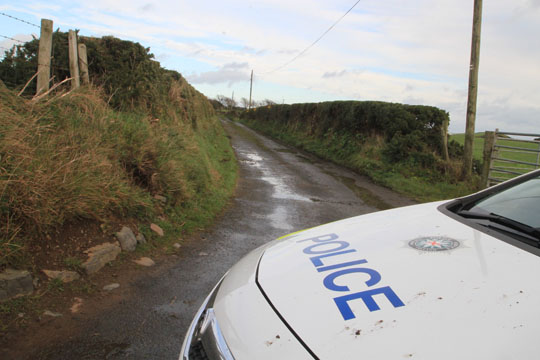“We each have a personal responsibility to behave appropriately as we share the road – to ensure our own safety and that of other road users.”
That was the message from Roads Minister Chris Hazzard as he reflected on the loss of life on our roads in 2016. Provisional figures released today by the PSNI show that 68 people died during the year.
Minister Hazzard said: “Road traffic collisions are sudden, traumatic events, occurring in a moment but with consequences enduring for a lifetime. This has sadly been all too evident over the Christmas break which has seen lives lost and families left heartbroken. I extend my sincere sympathies to all those who have lost loved ones and those who are suffering serious injuries through road tragedy in 2016.

“Every day and every journey brings with it a new risk and we need to be on our guard at all times. I am personally committed to making road safety a priority. While six fewer people have died than last year, every death is one too many – we need to work together to make 2017 a better year on our roads. I will continue to work with my Executive colleagues, the PSNI, the Fire and Rescue Service, the Ambulance Service and the many other agencies to improve road safety.”
Minister Hazzard said: “We will continue to focus on the main problem areas, such as drink driving, speeding, carelessness and inattention and seatbelt wearing; and on groups which are over-represented in the casualty figures.

“These are a key focus of the Road Traffic (Amendment) Act, which was passed by the Assembly in January 2016. The Act provides for a new drink drive regime that will mean lower limits including a de facto zero limit for learner drivers, newly qualified drivers and professional drivers. Other changes will include a new graduated penalty regime, increased enforcement powers, and greater use of Drink Drive Rehabilitation Schemes.
“I am very aware that too many drivers continue to flout the laws on using a mobile phone when driving. I intend to consult in 2017 on proposals to create a more effective deterrent. I will also continue to encourage drivers through my Department’s road safety campaigns to do the right thing and prompt them to question their decision in using a mobile phone”.
Almost all casualties on our roads are caused by poor road user behaviour and are therefore preventable. Mr Hazzard added: “The vast majority of road deaths are preventable. Complacency poses an enormous threat to road users – so we must not let our guard down.
“We each have a personal responsibility to behave appropriately as we share the road – to ensure our own safety, the safety of our passengers and that of other road users. Together, it is our actions that make a difference.
“I remain committed to doing all that I can to prevent the needless deaths on our roads. I call on everyone to join me in making Road Safety a personal New Years’ resolution.”
Assistant Chief Constable Alan Todd said, “While our preliminary figures indicate that 68 people have been killed on the roads in Northern Ireland, which is six less than 2015, it is difficult to see this situation as a successful outcome to the year.
“As we start the New Year, there are at least 68 families, groups of friends, work colleagues and communities across Northern Ireland who are coming to terms with the loss of loved ones who were killed in road traffic collisions. For others involved in serious collisions, it can mean adapting and learning to cope with life changing injuries.
“Road safety is and will continue to be a key priority for police. It should be everyone’s priority. The simple reality is that many collisions can be avoided. So slow down; Pay greater attention to your surroundings; leave the mobile phone alone; always wear a seatbelt and NEVER ever drive after drinking or taking drugs.
“Look out for other road users. Whether as a driver, a motorcyclist, a pedestrian or a cyclist, we all share the roads and the responsibility for road safety.”

























